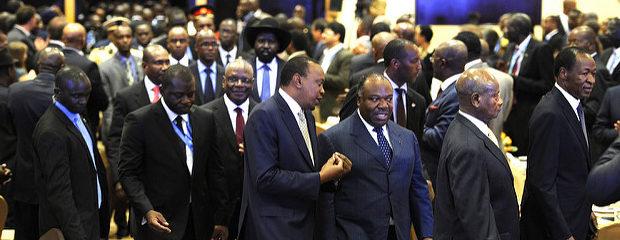Darfur: Why Doha Will Succeed
Tag El-Khazin is trying to shoot down the only peace process that can bring peace to Darfur. His article begins with a false assumption and this leads him to a wrong conclusion. He thinks that Darfur is an ordinary conflict and the toolbox of negotiating techniques that have been used in other conflicts can be applied. But Darfur is not South Sudan or Burundi, it is a uniquely severe, complicated and long-lasting conflict which has been condemned by the world as genocide. There are ongoing and unprecedented brutalities against the civilian population, and the fragmenting of the armed opposition movements. The Darfur conflict is multi-layered with local, national and international factors driving it. This unique kind of conflict needs a unique peace process.
The UN Security Council has said time and again that the Doha process can succeed and will succeed. The backing of the world’s highest and most powerful body is not to be taken lightly. Doha has the elements that can bring success, and the participants confidently believe will bring success. The high-powered mediation team has brought in an unprecedented number of qualified and experienced international experts from all parts of the world who are actually drafting the agreement themselves after a very extensive process of consultation with all the stakeholders. The Doha peace agreement will be the most expert and professional peace agreement in Africa.
As well as this professional expertise, Doha has resources. As I explained before, the Doha process has a built-in peace dividend. The Qataris have already established and capitalized a development bank for Darfur even before the agreement has been finalized. The problem that bedevils most peace agreements including the ill-fated DPA of donors failing to follow through on their promises cannot happen with Doha.
Doha enjoys international legitimacy like no other venue. The full weight and authority of the United Nations including the Security Council and the Secretary General are in support of Doha and the mediator. The UN Security Council resolutions are 100% clear on this and go so far as to name the JCM himself in clear and emphatic fashion. The Sudan government Darfur strategy which was seen last week by knowledgeable sources makes it abundantly clear that they are committed to Doha and no other venue or process. Dr Khalil Ibrahim and Abdul Wahid Nour may stay away from Doha for now but they will soon realize that this is their mistake and they will be left behind by history. Dr Khalil’s “anywhere by Doha” stance will cost him dearly.






very clear view about Doha efforts towards Darfur peace might help those who are still fighting and let them know that there is another way for solving all problems away from the gun.